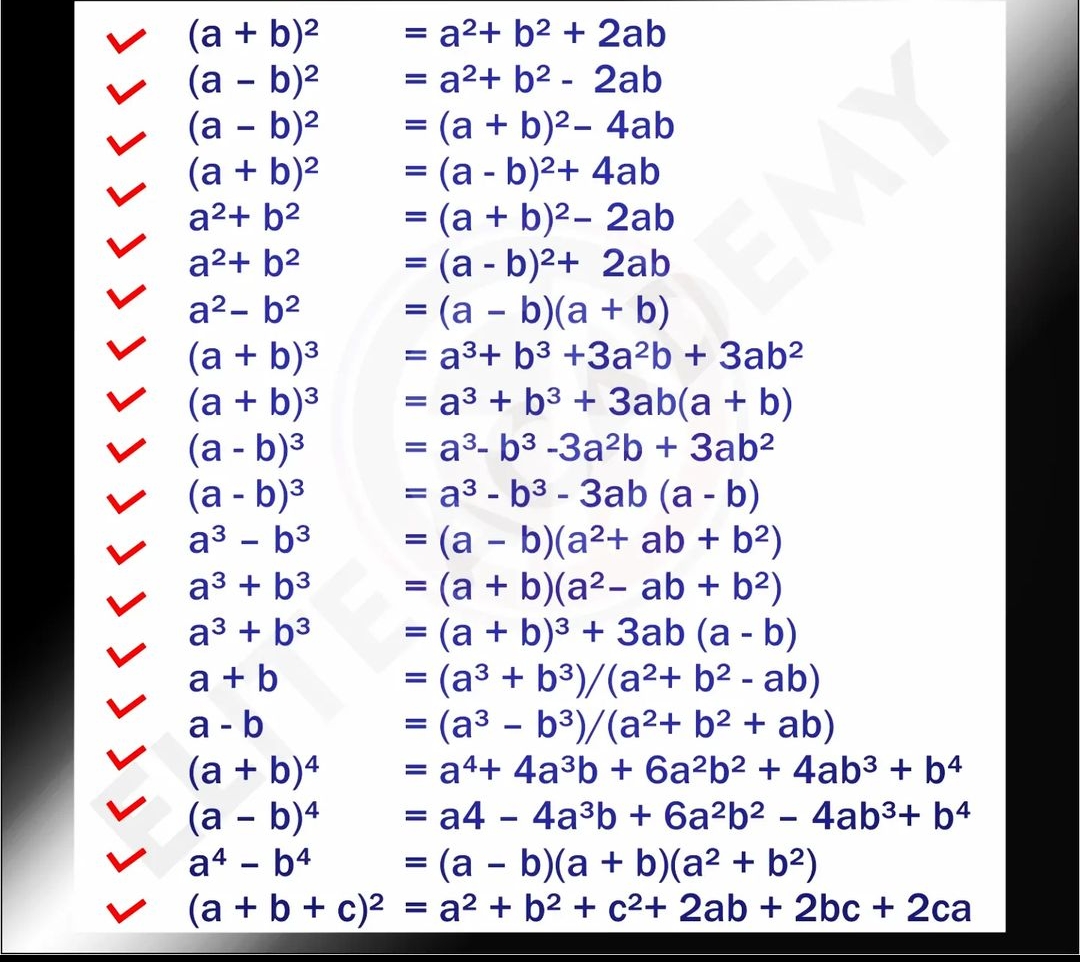Explain the algebraic identities and expansions shown in the image.

Understand the Problem
The question is requesting the identification or explanation of algebraic identities and their expansions, specifically focusing on the binomial theorem and related expressions. The high-level approach to address this involves confirming or simplifying the provided algebraic identities.
Answer
All identities are correct based on the application of the binomial theorem and algebraic principles.
Answer for screen readers
All the identities provided in the image are correct. They are verified through the applications of the binomial theorem and algebraic identities.
Steps to Solve
-
Identify the Binomial Expansion
The binomial theorem states that for any non-negative integer $n$, the expansion of $(a + b)^n$ is given by:
$$(a + b)^n = \sum_{k=0}^{n} \binom{n}{k} a^{n-k} b^{k}$$
This applies to each expression given. -
Verify Each Identity
For each identity shown in the image, apply the binomial theorem or algebraic identities such as:
- $(a + b)^2 = a^2 + 2ab + b^2$
- $(a - b)^2 = a^2 - 2ab + b^2$
-
Use Difference of Squares for Cubes
For $a^3 - b^3$, use the identity:
$$a^3 - b^3 = (a - b)(a^2 + ab + b^2)$$
Check that $a^3 + b^3$ and $a - b$ yield the correct expanded forms. -
Expand Higher Powers
For expressions like $(a+b)^4$ and $(a-b)^4$, utilize the expansions: $$(a + b)^4 = a^4 + 4a^3b + 6a^2b^2 + 4ab^3 + b^4$$
$$(a - b)^4 = a^4 - 4a^3b + 6a^2b^2 - 4ab^3 + b^4$$ -
Combine Like Terms
In cases involving multiple variables, like $(a + b + c)^2$, remember to combine like terms carefully based on the expansion properties.
All the identities provided in the image are correct. They are verified through the applications of the binomial theorem and algebraic identities.
More Information
The binomial theorem is fundamental in algebra. It allows for the expansion of powers of binomials and is key in combinatorics, probability, and calculus. Each expansion illustrates how polynomial terms are combined.
Tips
- Neglecting signs: A common mistake is miscalculating the signs when expanding $(a - b)^n$.
- Forgetting coefficients: In higher powers, forgetting the coefficients when expanding multiple variables can lead to errors.
AI-generated content may contain errors. Please verify critical information